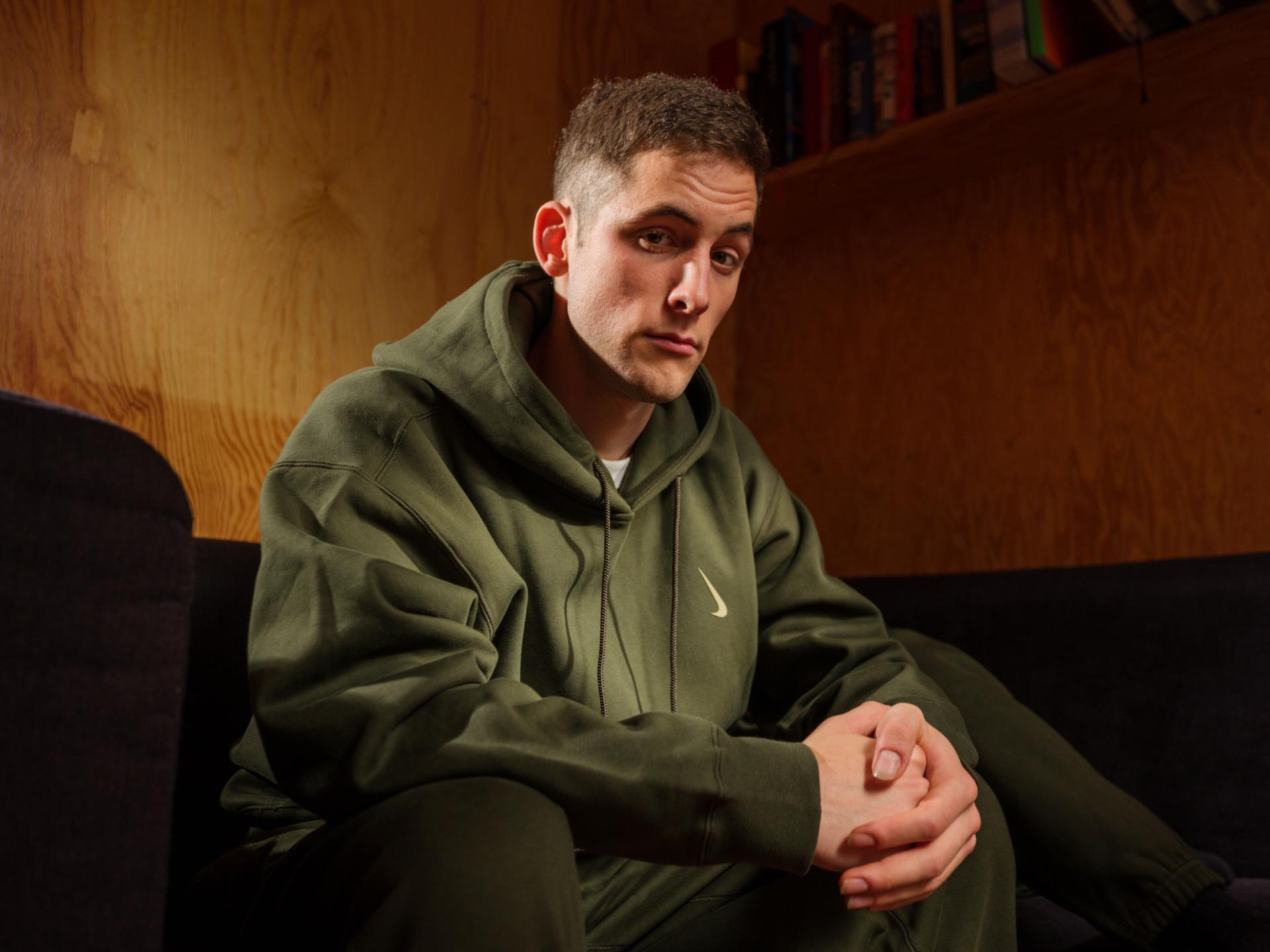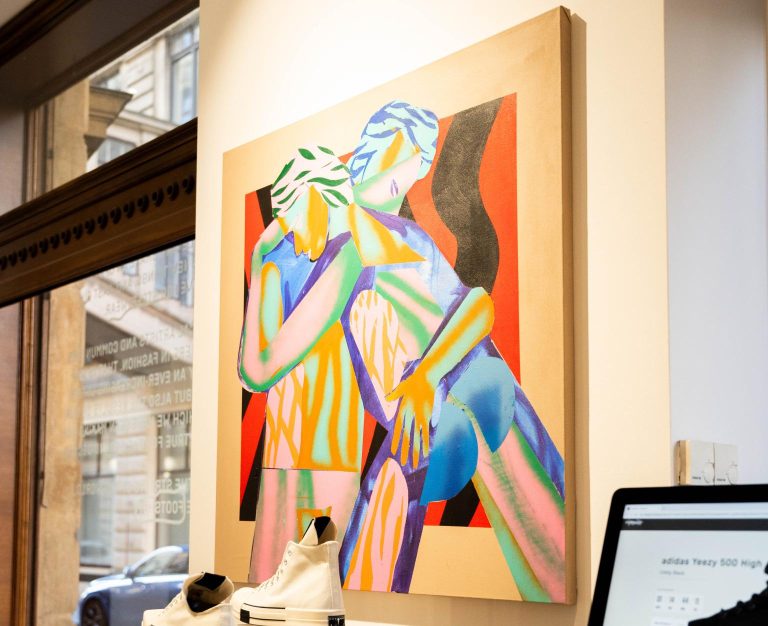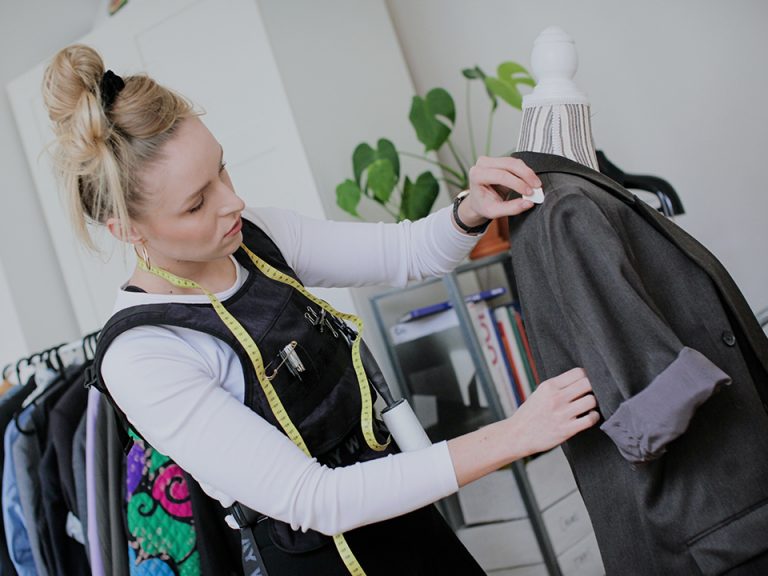As part of the launch of the Nike x Billie Eilish collection, we focused on raising awareness related to the diagnosis that the American singer herself struggles with – Tourette Syndrome. Marek Kotalík, 25, who has been living with Tourette’s since he was a young boy, accepted our invitation as the face of the photo editorial for the new collaboration. Marek was the main hero of our interview, in which we focused not only on the myths but also on the positives in a lot of inconveniences that define life with this diagnosis.
Before the interview, let’s take a few moments to introduce the topic. Tourette’s syndrome is a unique neurological-psychiatric disorder and its most common symptom are various forms of repetitive tics – both physical and vocal. Especially in recent years, awareness of the diagnosis has been growing, thanks to social networks but unfortunately, it is accompanied by many myths and half-truths. It is the incomplete context and perceptions of the disease that make it difficult for patients to integrate into everyday life, where they are often confronted with many prejudices and misunderstandings.
In the Czech Republic, the INEP clinic and the allied Association of Tourette Syndrome Patients ATOS are helping people with the disorder to overcome the problems arising from the disease, which are seen, for example, in difficulties in studies and work, but also family and partner relationships. It was ATOS that connected us directly with Mark, and we are so grateful for the chance and trust to talk to him about living with TS and his determination to look at the world in a positive light, as well as his awareness of the ever-present urge to get rid of the inner tickle that won’t go away with a scratch.
How would you describe your diagnosis to someone who has never heard of it?
If I were to compare it to what probably everyone has experienced, it’s this compulsive need to scratch when one feels an inner itch. And it’s the scratching that relieves that inner itch.
But I guess the difference is that after a while, the “normal itch” goes away…
In our case, it’s more about finding a way to make it as quiet as possible.
What’s the biggest myth about Tourette’s?
That we swear. This is linked to the fact that this is the symptom that is most visible in the media, as it is the most bizarre way our diagnosis can manifest itself.
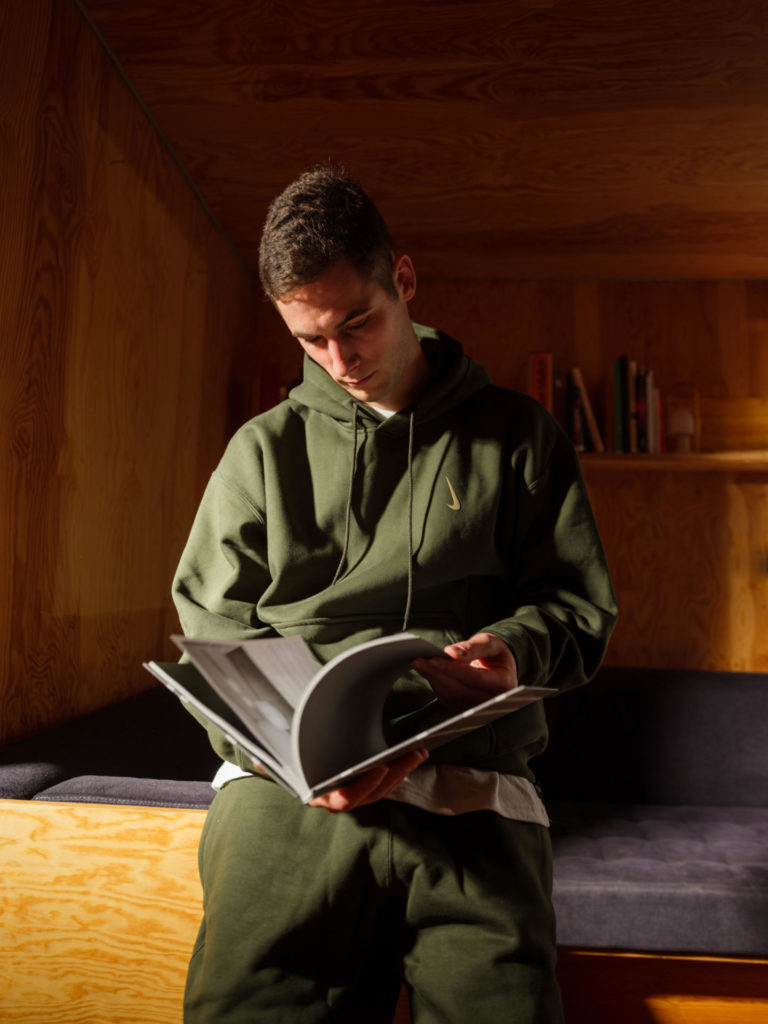

Does that mean that most people with Tourette’s don’t experience it?
It’s rare, but it’s all the more crazy. For me, something like that was more of a grunt, a mumble, or a rumble. But even that is unpleasant because it happened to me that one person at the bus stop took it as a reference to him and wanted to fight with me.
And did you explain it to him?
I left. He didn’t look like he wanted to talk.
That doesn’t sound very nice. Do you have a funny story that happened to you concerning your diagnosis?
The thing about Tourette’s is you’re more prone to do tics when you know you can’t do them. So imagine that: The lady and I, leaning back, my hands behind my head, and I realize that the arm can’t possibly go out right now… So, unfortunately, I hit her, and the romance was gone.
It’s all about thoughts.
How do alcohol and other substances affect the symptoms of the syndrome?
I don’t think it directly affects the tics. It’s more about the situations it puts you in. If you’re out drinking with your mates, like at a club, doing something, you don’t twitch as much because you’ve got something to do. It’s all about thoughts.
Would you say that your diagnosis makes you think more about thinking?
I’m sure it makes you think because you’re constantly trying to figure out how Tourette’s works.
When did you first become aware of your diagnosis?
It’s been around since kindergarten, but I didn’t find out that I had TS and what exactly it was until I was 15. At first, we thought it was some kind of bad habit, cramps, etc. We tried magnesium, and I had an MRI, until one day my mom got the right psychiatrist who told me right off the bat. I have to say, it helped me a lot. I was finally able to put a name to it, until then I was just a kid with a weird twitch. I also suddenly realized I wasn’t alone.
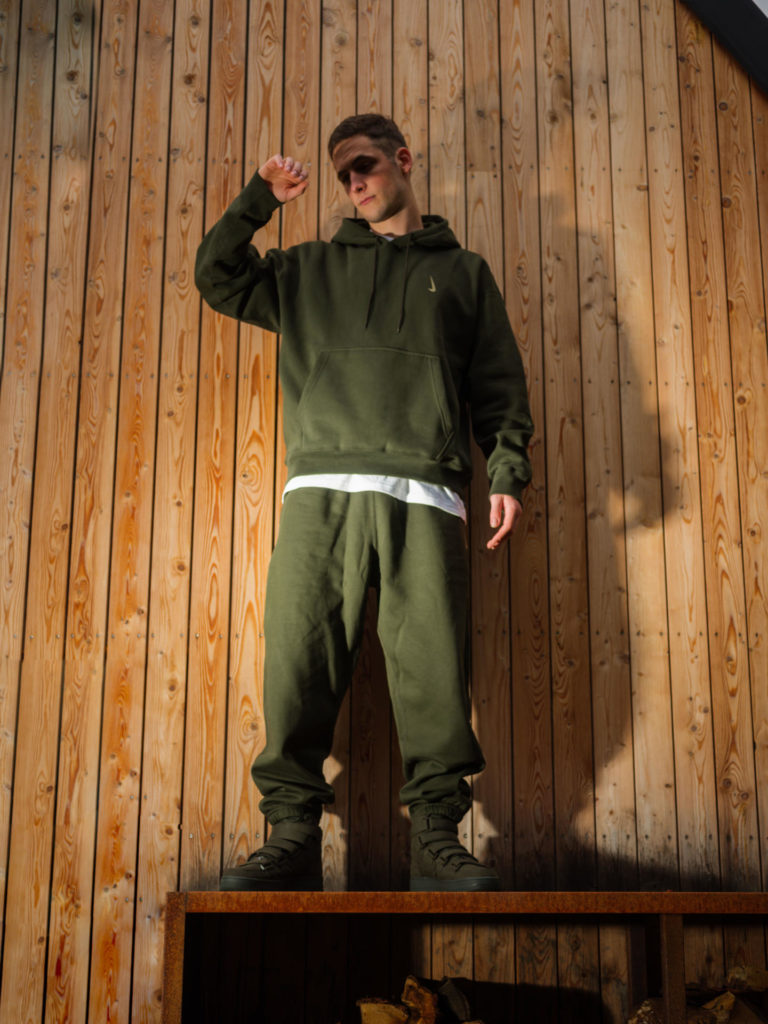

There is often discussion about the challenges, but do you perceive anything in which TS has enriched you?
It’s an effective filter for people. I think of it as a social test of how others can perceive similar things because for them there’s not much time to think about that reaction, but it’s a direct confrontation. And it also taught me not to give a f*ck. Anyone, anytime, anywhere, just don’t bother. The number of times I’ve had someone take it out on me like when I’m on the tram, I have to deal with it somehow. But in this context, it also means I have more space for myself. Finally, I’ll mention that I always have something to talk about with people I don’t know that well because I can always pull out that fifteen-minute monologue about Tourette’s in a dating conversation.
Then when you make these people aware that you have Tourette’s, do they know what it’s about?
They usually do. I’d say the awareness has picked up a lot in the last few years.
It definitely makes you mentally stronger. It’s all about coming to terms with it.
How common is Tourette’s syndrome?
There are not many of us, I don’t know many people with Tourette’s. Plus, the symptoms aren’t very clear, so I don’t even have to know the person at first glance.
And as for celebrities with Tourette’s, who are famous?
Aside from Billie Eilish, who I honestly didn’t know about until now myself, I’ve heard that Amy Winehouse struggled with it. In the Czech Republic, for example, Ivo Toman, a well-known businessman, and writer.
If you had to give people with TS one piece of advice on how to improve their lives, what would it be?
It’s all about coming to terms with it. You just have it and there’s nothing you can do about it. You can also use it to your advantage. It will definitely make you mentally stronger, maybe towards people who make fun of it. You mustn’t let those who see it as your weakness know that you feel that way too. And even though it’s hard to do, you have to find the positive in it. It teaches you to take things in stride.
And if you had to give one piece of advice to people without a diagnosis that might make life more or less difficult for people with the syndrome?
They need to realize that it’s not fun. A lot of people get depressed about it and it’s really difficult to deal with. But quite simply, don’t judge a book by its cover. Just because someone looks weird doesn’t mean they are. For example, I’ve been happy so many times when someone has asked me if everything is okay, just be nice.

? This interview with Mark was conducted as part of the launch of the new Nike x Billie Eilish collection, which you can read more about in the next article.
- Summer must burn - 10. 5. 2023
- On Feet: The best sneakers of the week are dominated by New Balance - 4. 5. 2023
- 4 colours of 2023 that define a separate trend category - 5. 4. 2023
